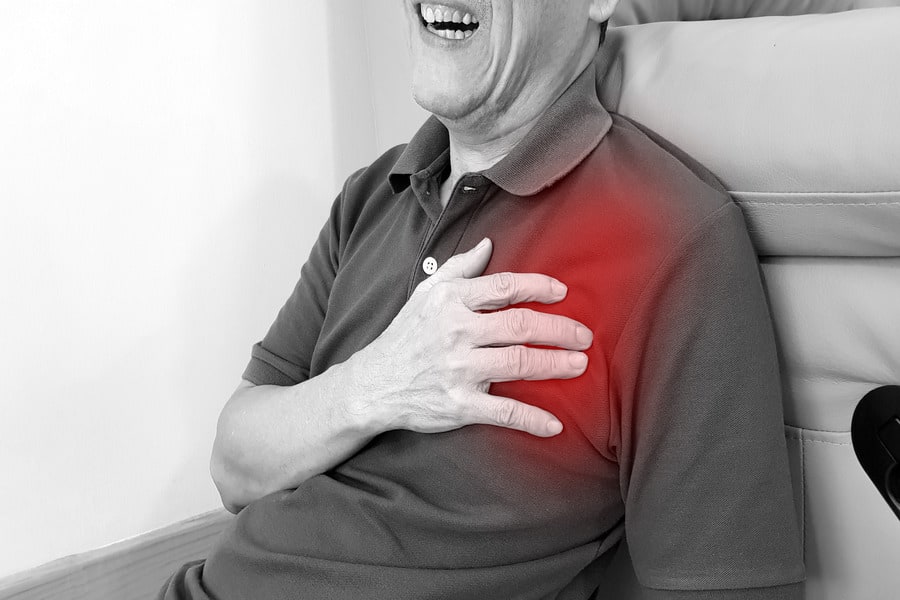Acute Coronary Syndrome, commonly referred to as ACS, is a medical term used to describe a range of conditions associated with a sudden reduction of blood flow to the heart muscle. This can result in symptoms like chest pain (angina) or even a heart attack. ACS is a critical medical condition that requires prompt diagnosis and intervention.
Overview
At the heart of ACS is the coronary artery – the main vessel providing oxygen-rich blood to the heart. When there’s a blockage or sudden reduction in blood flow in this artery, it can cause damage to the heart muscle. This disruption can occur due to various reasons, which we’ll delve into shortly. The spectrum of ACS ranges from unstable angina, where there’s minimal or no permanent damage, to a full-blown heart attack where the heart muscle can suffer lasting damage.
Symptoms
ACS manifests through a range of symptoms, and their severity can vary depending on the underlying cause:
- Chest pain or discomfort, which might feel like pressure, tightness, burning, or fullness.
- Pain radiating to the arms, neck, jaw, stomach, or back.
- Shortness of breath, often accompanied by or even without chest discomfort.
- Sweating, dizziness, or lightheadedness.
- Nausea and vomiting.
- An overwhelming sense of anxiety resembling a panic attack.
- Unexplained fatigue or weakness.
Causes
The heart muscle requires a constant supply of oxygen-rich blood. ACS primarily occurs due to interruptions in this supply, and the reasons include:
- Plaque Rupture: The heart’s arteries can get lined with fatty deposits known as plaques. These can rupture and lead to a blood clot. If the clot is big enough, it can block the artery, causing ACS.
- Coronary Artery Spasm: Sometimes, a spasm or tightening of the coronary artery can constrict blood flow, leading to symptoms.
- Spontaneous Coronary Artery Dissection: In rare cases, a tear occurs in the artery wall, which can reduce or block blood flow.
Risk Factors
Various factors can amplify the risk of developing ACS:
- Age: Older individuals, especially men over 45 and women over 55, are at a higher risk.
- Tobacco Use: Smoking and long-term exposure to secondhand smoke significantly increase the risk.
- High Blood Pressure: Over time, elevated blood pressure can damage arteries, making them vulnerable to plaques and blockages.
- High Cholesterol Levels: High levels of bad cholesterol increase the likelihood of plaque formation.
- Diabetes: High blood sugar contributes to artery damage over time.
- Family History: A family history of heart disease, especially if a first-degree relative had it at an early age, increases the risk.
- Obesity: Being significantly overweight means the heart has to work harder, contributing to potential artery damage.
- Physical Inactivity: A sedentary lifestyle is a well-known risk factor for coronary artery disease.
- High Stress: Chronic stress and even sudden episodes of stress can be a trigger.
When to See the Doctor
If you or someone you know exhibits symptoms of ACS, it’s imperative to seek emergency medical care immediately. Time is of the essence in such scenarios. Quick intervention can save heart muscle and improve the chances of a better recovery.
For those who fall under multiple risk categories, regular check-ups with a cardiologist become essential. A cardiologist can assess heart health, guide towards healthier lifestyle choices, and advise on preventive measures to mitigate the risk of ACS.
In conclusion, acute Coronary Syndrome is a grave medical condition that commands our understanding and attention. Being cognizant of its symptoms, causes, and risk factors allows for early detection and intervention. Leading a heart-healthy lifestyle and being vigilant about any unusual symptoms can make all the difference in preventing and managing ACS. In the world of heart health, awareness is the stepping stone to wellness.









